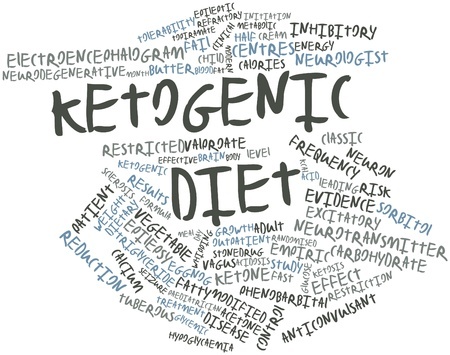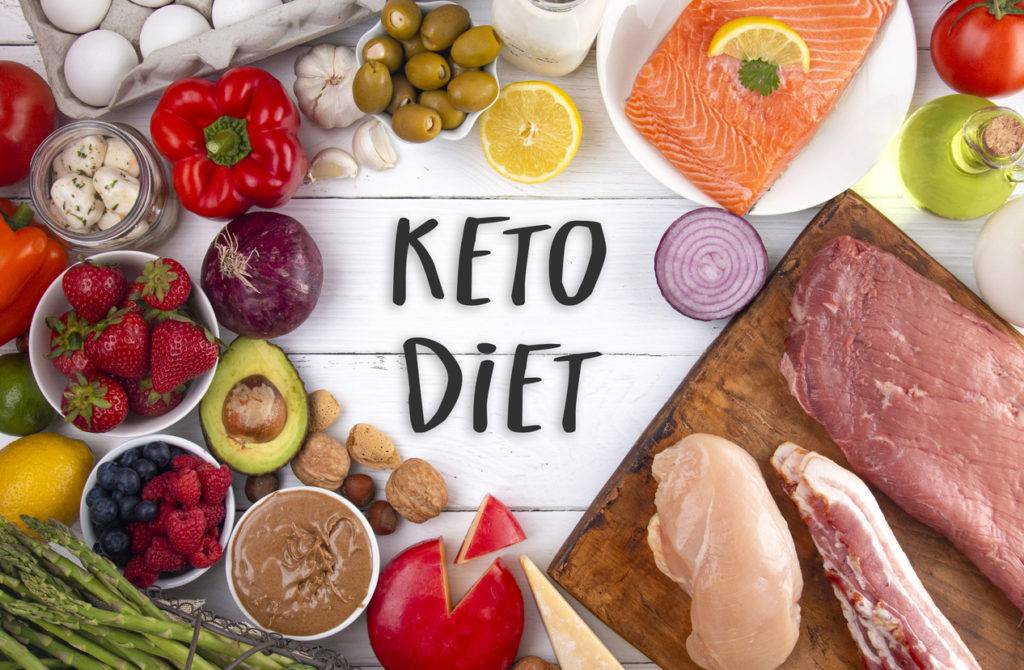Get the Answer to This and Other Tricky Questions
Today, this diet is much more commonly associated with weight loss. Before you start your journey, you should make yourself familiar with what ketosis is. Ketosis is a metabolic state in which there’s a high concentration of ketones in the blood. This happens when fat provides most of the fuel for the body, and there’s limited access to glucose. Glucose (blood sugar) is the preferred fuel source for many cells in the body.
However, one of the major questions people have, when they start, is a short and sweet one: “Is ketosis bad for me?” This article, explains what it is and how it can benefit you.
Is Ketosis Bad?
While fasting has many benefits, the question remains the same: Is ketosis bad for your health? First of all, let’s talk about how to get into ketosis. The Keto diet aims to force your body into the Ketogenic state. At this point, your body has no choice but to look for other energy sources, which leads to the high production of ketone bodies. This kind of diet reduces carbs so the body is again forced to start using fat for fuel.
The diet plan, and ketosis, have been linked to general weight-loss benefits and a lower appetite. You generally need to eat fewer than 50 grams of carbs per day and sometimes as little as 20 grams per day. For your reference, one small apple has about 15 grams of carbs; one large banana has about 30 grams. When you’re on the keto diet, you’ll be staying away from all whole and refined grains. You’ll skip starchy vegetables such as potatoes, corn, and winter squash. You’ll also pass on the majority of fruit and fruit juices, legumes, and alcoholic drinks.
Since the diet plan has recently surged in popularity, some people have questioned the long-term health effects it may have. So, is ketosis bad for your general health?
A ketogenic diet can help you lose weight. In the short term, you can lose weight quickly, because it reduces the body’s stores of glycogen and water. In the long term, it can suppress your appetite leading to a lower calorie intake.
While a ketogenic diet can have benefits for health and weight loss, it can also trigger some side effects. Including the “low carb flu,” leg cramps, bad breath, and digestive issues, especially in the first few days or weeks.
Based on its presence in medical research, the ketogenic diet is not a fad or trend. Among those who have tried this diet, some of the most positive, beneficial signs of reaching a ketogenic state include weight loss, enhanced focus, and increased energy.
Next up, let’s talk about the time you spend on the Keto diet and in ketosis. No one is exactly sure. Research tells us that the keto diet seems to be safest when followed for about 2–6 months, or up to about two years or so when the individual is being monitored by a doctor.
Following a keto diet in the short term — generally no more than a few months — may cause no problems and allow you to enjoy all its benefits. Long-term, very low carbohydrate diets have been reported to lead to ketoacidosis, a state when excessive ketones produce a dangerously toxic level of acid in the blood.
However, experts can only theorize since there haven’t been many studies into the side effects beyond two years. The researchers in the previously mentioned study state that long-term side effects could include kidney stones, vitamin and mineral deficiencies, hepatic steatosis (excess fat in your liver), or hypoproteinemia (low protein in your blood). And as with all changes in your health regimen, seek the advice of your healthcare professional before you begin.

Is Ketosis Bad for Your Kidneys?
According to an article released by Harvard Medical School, “Patients with kidney disease need to be cautious because this diet could worsen their condition.” Although uncommon, the keto diet can contribute to triglyceride accumulation and markers of liver inflammation, possibly because of the diet’s higher protein and fat content compared to other commonly recommended diets.
Your kidneys act as a filter for water and waste in your body. The kidneys perform many crucial functions, including:
- maintaining overall fluid balance
- regulating and filtering minerals from the blood
- filtering waste materials from food, medications, and toxic substances
- creating hormones that help produce red blood cells, promote bone health, and regulate blood pressure
Some studies also suggest that the keto diet reduces the amount of citrate that’s released in your urine. Given that citrate can bind to calcium and prevent the formation of kidney stones, reduced levels of it may also raise your risk of developing them.
And always talk to your doctor about your nutritional needs. They’ll be able to assess any medical problems you currently have and offer you advice on the best course of action for you.
The National Kidney Foundation recommends that people with kidney disease who are receiving dialysis may benefit from consuming more protein. The information from the National Kidney Foundation states that people having this treatment may need to eat more to maintain their blood protein levels. But for those people with kidney disease who are not on dialysis follow a low-protein diet plan. The reason is that the more protein you consume, the more your kidneys will have to remove. That will cause your kidneys to have to work harder than usual and put excessive strain on them.
If you are truly struggling to enter ketosis, one of the things you can try is to speak to a dietician. They’ll be able to assess any medical problems you currently have and offer you advice on the best course of action for you.

5 Ketosis Risks to Be Aware Of
Remember, the ketogenic diet will actually change your metabolism, put you into ketosis, and turn you from a sugar burner to a fat burner. However, to protect your health, you’ll also need an understanding of the disadvantages of this state. This diet carries risks you should be aware of. Here is the list of them.
- Keto “flu”
Most people already know about the keto flu, which can happen when you start the diet. The side effects of ketosis are given that name because the symptoms are similar to flu symptoms. Why do you get the keto flu? Because while ultimately the ketogenic diet is both safe and health-promoting in many ways, it forces your body to go through some major changes. Once the body is in ketosis — burning fat instead of glucose — the keto diet is working. But you may not feel so great at first, hence the term keto flu.
- Bad breath
As higher levels of ketones circulate in your blood, you will begin to excrete them in several ways. And when you’ve entered ketosis, you may find that there’s an unpleasant — potentially embarrassing — side effect: stinky breath. Your lungs will be one of those avenues, often excreting acetone. As blood acetone levels rise during ketosis, your body gets rid of some of it via your breath. Halitosis, as this condition is formally known, is common in people experiencing ketosis.
Occasionally, sweat and urine can also start to smell like acetone. And for most people, this unusual-smelling breath will go away within a few weeks.
- Digestive problems
Dietary changes can sometimes lead to digestive issues. From bloating to constipation, switching to a keto diet can be distressing to your digestive system. Since the keto diet restricts carbs, it can be difficult to meet your daily fiber needs. Some of the richest sources of fiber, such as high-carb fruits, starchy vegetables, whole grains, and beans, are eliminated from the diet because they provide too many carbs. As a result, the keto diet can lead to digestive discomfort and constipation. Some people may also get diarrhea, but it’s less common.
Nevertheless, digestive issues are usually over within a few weeks, it’s worth knowing about it before you start your diet plan. You don’t want any surprises!
- Possible heart issues
The connection between the ketogenic diet and cardiovascular disease risk factors is complicated. According to the Centers for Disease Control and Prevention, heart disease is responsible for one in every four deaths in America. Some older studies suggest that reducing carbs to achieve ketosis may improve heart disease risk factors such as blood triglycerides, total cholesterol, and HDL cholesterol. Of course, leading an active lifestyle will help to keep your heart working well.
However, a 2019 review notes that people on a very low-carb diet may miss out on heart-healthy foods, such as whole grains and pulses. It’s worth understanding that following a low-carb diet plan, such as the Keto diet, could ultimately harm your health.

Let’s look at a simple question here: Is ketosis bad for athletes and active individuals? Many endurance athletes also turn to these very low-carb, high-fat diets to boost their performance. But athletes involved in high-intensity, short-duration sports might see drops in performance while on a ketogenic diet, suggests new research.
Researchers from Saint Louis University tested the anaerobic exercise performance of 16 men and women following either a low-carbohydrate ketogenic diet or a high-carbohydrate diet for four days. These types of exercises include heavy weight training, sprinting, and jumping among other activities. People on the ketogenic diet performed more poorly at anaerobic exercise tasks than those eating more carbs. On the other hand, the study found that the diet helped athletes with high-intensity performance. Again, the researchers did not say whether these results were linked to ketosis.
The Takeaway
If you believe that you would benefit from a ketogenic lifestyle, it is recommended that you do your research and take all the right steps. Of course, before you decide to start any new diet plan, you need to make sure that it’s right for you and your current state of health.
Yes, the keto diet does work. Its rapid and reliable weight loss will occur in even a keto for beginners diet, due to lowered insulin levels and the body being forced to burn stored body fat for energy. But the following a strict diet to induce ketosis can be very difficult, and there may be some negative side effects.
And never feel pressured to follow a diet plan just because it’s trending. Make sure your top priority is your health, always. After all, Dr. Eric Westman said it best, “Patience and persistence are an absolute must as you pursue ketosis.”



